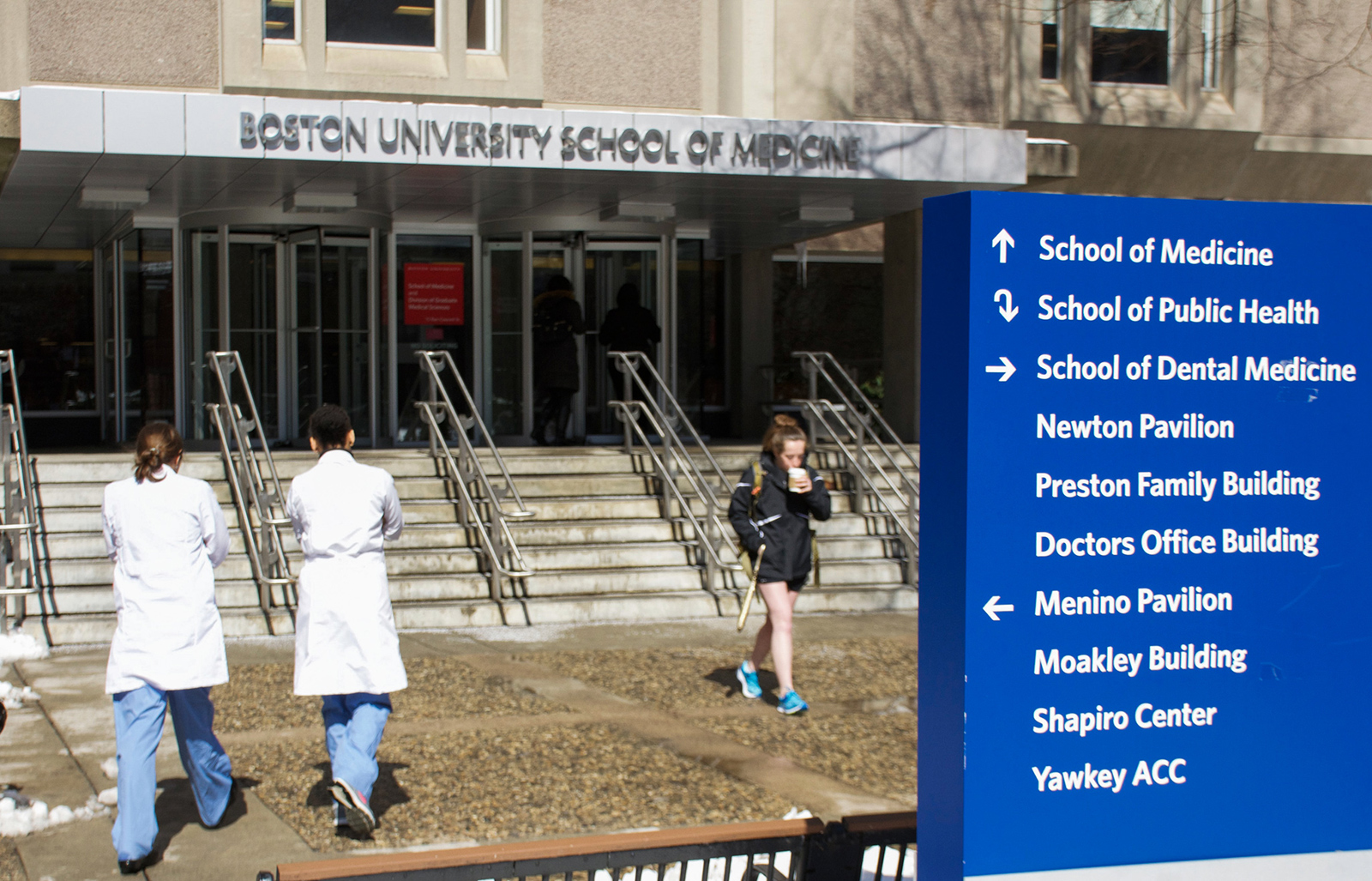
As Boston University’s instructors adapt to the restrictions of hybrid learning, some health and pre-medical students say they are no longer getting the hands-on experience they need to feel prepared for their careers.
The Learn from Anywhere model has altered curricula that traditionally relied on laboratory-based courses.
The School of Medicine’s Theresa Davies, assistant dean for graduate affairs in Graduate Medical Sciences, said that to make up for reduced access to labs, professors have provided students with additional group projects outside of class that build on lab concepts.
“They’re still doing the lab, but they’re not getting as much hands-on experience,” Davies said. “Professors have adapted with less research, less time in the laboratory by reinforcing lab-based curriculum with problem-based and discussion-based research.”
Davies said BUSM is relying on new technology to help innovate their teaching methods to accommodate remote learning. Students are now using apps to practice the skills needed to read images from MRIs, as well as learning interactively through 3D anatomy apps.
Due to reduced capacities at the BU Medical Campus, students have adapted to remote versions of training normally done in the hospital.
Davies said the faculty at BUSM has continued to update their curriculum as the school has acclimated to the Learn from Anywhere model.
“They’re tweaking things every week,” said Davies. “It’s COVID, and everyone’s doing whatever they need to do.”
College of Arts and Sciences senior Alan Perry, a student in BU’s Seven-Year Liberal Arts/Medical Education Program, said in past years students would shadow doctors at Boston Medical Center. Now, Perry said students practice patient interviews remotely from the medical school.
“We don’t have the same kind of experiences and opportunities that we did previously,” Perry said. “It’s definitely affecting the quality of my education.”
Perry, who began taking classes at BUSM this year, said his experience in the cadaver lab has differed from his expectations.
“We’re not actually doing any of the dissections, which is very important to medical education,” Perry said. “Instead, the dissections have been done for us, and we’re just in there kind of poking around and looking around, which was surprising, to say the least.”
He said he and his peers did not know they would not be working hands-on with the cadavers. Medical students are now spending around two hours a week with the cadavers as opposed to the typical 20–35 hours.
“It has been much to the chagrin of both myself and a lot of other medical students,” Perry said, “because we don’t feel like we’re getting enough time in there.”
Kiki Maypole, a sophomore in CAS who is also in SMED, said she feels worried about her learning experience given the use of remote labs this semester. To learn anatomy, she said, students must have a “good spatial sense of everything,” which is more difficult to manage virtually.
“They’re making us do things like figure out what side of the body different bones are on,” Maypole said, “and for that, you need to be able to hold a bone, flip it over, figure out which groove is which.”
Maypole said that for anatomy especially, in-person labs are “essential” in preparing medical students for the future.
Ravi Patel, a second-year student in BUSM, said the switch to the hybrid model has been “a blessing and a curse.” It can be isolating to tackle heavy workloads alone without the ability to work alongside friends in classrooms, Patel said, but this comes with a silver lining.
“When we switched over to Zoom,” Patel said, “I found myself having more time, just given the fact that I didn’t have to commute for certain things.”
Patel said that as a second-year medical student, much of his curriculum is based on gaining physical examination skills to prepare for the hospital rotations he will be doing throughout his third year. He said students are now adapting to holding mock exams over Zoom.
“You’re just trying to verbalize what you’re doing,” Patel said, “instead of actually talking to somebody and actually hearing the heart and lung sounds, or palpating the abdomens, or listening to valve sounds, whatever it may be.”
Kathryn Spilios, director of instructional labs in the CAS Biology Department, wrote in an email that the adjustment has been “challenging but rewarding” because the new hurdles mean instructors have been able to try new techniques to engage with students.
“There are certainly technical issues that everyone is learning as we go,” Spilios wrote, “but we have also been ‘forced’ to re-examine how we teach.”






























































































































Dolores Tropiano • Oct 7, 2020 at 1:03 pm
My son attends BU. I am also a journalist. I appreciate the information about how remote learning is impacting the quality of education – particularly for premed students. On the other hand, my son is on campus and said he is attending labs. Any chance you can do a piece on the quality of education for those who are still attending labs? I would be happy to provide his contact info as a source.